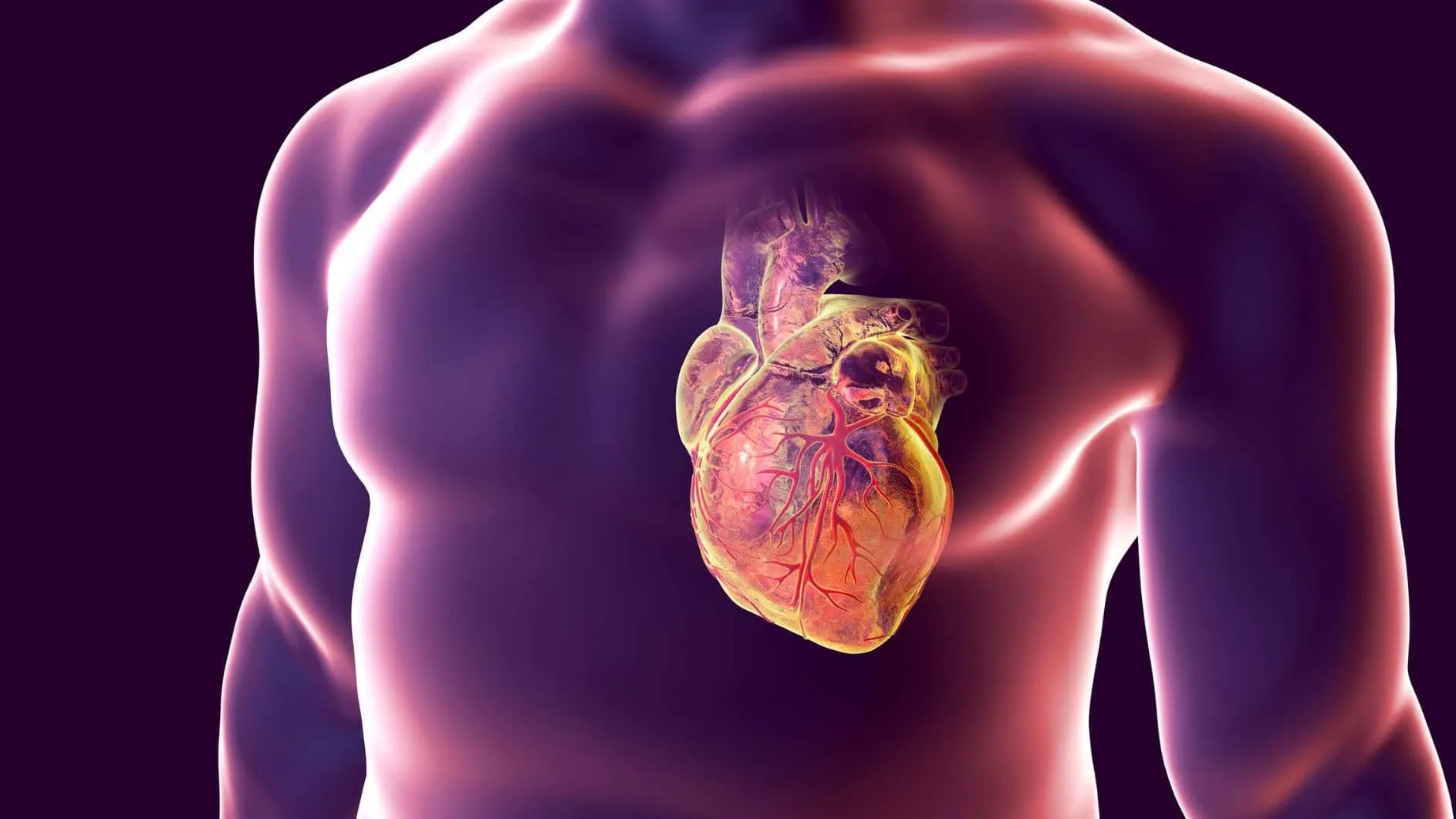Testosterone and Heart Disease, Heart Attacks, and Stroke Risk

Low testosterone and heart disease, heart attacks, and stroke have been shown to be associated by numerous studies.1,2,3,4. In a study published in 2012, conducted by Veterans Affairs in Seattle, Washington, researchers found that in “men with low testosterone levels, testosterone treatment was associated with decreased mortality compared with no testosterone treatment.”5
This 2012 study showed that men receiving low testosterone treatment were less likely to die than men who had untreated low testosterone. In fact, “the mortality in testosterone-treated men was 10.3% compared with 20.7% in untreated men.”
Controversy has been created by another recent study done by Veterans Affairs (VA) researchers in Colorado that studied veterans between 2005 and 2011 and included 8,709 men with low testosterone.6 The study published these results:
- 8709 men with a total testosterone level lower than 300 ng/dL were included in the study
- 1710 total outcome events: 748 men died, 443 had heart attacks, and 519 had strokes
- 1223 patients started testosterone therapy after a median of 531 days following coronary angiography
- 7486 patients not receiving testosterone therapy: 681 died, 420 had heart attacks, and 486 had strokes
- 1223 patients receiving testosterone therapy: 67 died, 23 had heart attacks, and 33 had strokes
The study reports that “the absolute rate of events were 19.9% in the no testosterone therapy group vs 25.7% in the testosterone therapy group,” but how did they get these numbers? If we do the math based on the above data here is what we can calculate:
- 20% of all the men in the study had either a stroke, heart attack, or died over a 3 year time frame
- 21% of men NOT receiving testosterone therapy died or had a heart attack or stroke
- 10% of men receiving testosterone therapy died or had a heart attack or stroke
If the following is too technical please feel free to skip ahead where we talk about the results from some studies that were designed better.
Perhaps they did some fancy math to make 10% become the reported 25.7% rate of incidents in the testosterone therapy group. Or, perhaps the study was very poorly designed. In fact, “of the 1223 patients prescribed testosterone therapy, 215 patients (17.6%) filled only 1 prescription,” and only “734 patients (60.0%) had another testosterone value checked after starting treatment.”
In addition, they never actually verified with lab testing that they increased the majority of these men to “normal” testosterone levels. On average they only checked men’s testosterone levels twice after beginning treatment with 40% having no repeat lab testing and 60% “had a mean of 3.3 measurements.” Among these 60% of men receiving what the VA considers testosterone therapy, “the baseline testosterone level was 175.5 ng/dL and increased to 332.2 ng/dL for the first repeat testosterone measurement.” The normal range for testosterone levels is about 350 ng/dL to 1200 ng/dL.
The Veterans Affairs researchers do concede some potential for error in their study: “there was a relatively small group of patients with extended follow-up time (267 patients at 2000 days after coronary angiography) so that our estimates of the risk of testosterone therapy are less reliable at these extremes of follow-up; however, this is a potential limitation of any study that follows up patients for extended periods.”
What they did was far from what I’d call “testosterone therapy” as there was barely any follow-up lab testing performed and when they did lab testing the results showed that testosterone levels had barely improved. I suspect many of the subjects in the study were converting too much of their testosterone to estrogen or not even absorbing their topical testosterone at all. They even admit that many patients didn’t even refill their prescriptions for testosterone yet somehow they’re still counted as being on testosterone replacement in the study.
The Dangers of Excess Estrogen in Men
Stroke is a major cause of age-related disability and the third leading cause of death in men. Abnormal blood clotting in the blood vessels in the brain is the most common cause and excess estrogen promotes abnormal blood clots.7
In a study published in 2007, blood levels of estrogen (estradiol) were measured in 2,197 men aged 71 to 93 years of age. Men with the highest blood levels of estradiol had a 2.2-fold greater risk of stroke compared with those whose estrogen levels were lower.8 This study revealed that estradiol blood levels greater than 34.1 pg/mL resulted in this more thandoubling of stroke incidence.
After additional adjustment for hypertension, diabetes, adiposity, cholesterol concentrations, atrial fibrillation, and other characteristics, men in the top quintile of serum estradiol continued to have a higher risk of stroke vs those whose estradiol levels were lower. Testosterone was not related to the risk of stroke.8
Thickening of the carotid artery correlates with increased risks of stroke and heart attack. Research has shown that “circulating estradiol is a predictor of progression of carotid artery intima-media thickness in middle-aged men.”9
Further research has show that it is increased estrogen and “bad” cholesterol (low density lipoprotein or LDL) that increase the risk of heart atatcks in men, not testsoterone.10
Serum estradiol and low density lipoprotein levels are increasedbut total testosterone, free testosterone and sex hormone binding globulin levels aredecreased in men with acute myocardial infarction (heart attack) compared with patients with normal coronary arteries.10
Our goal is always to balance both testosterone AND estrogen when doing testosterone therapy. We know that too little cholesterol (below 150 mg/dL) can be bad and that too much cholesterol (levels over 200 mg/dL) can increase the risk of health problems as well. We believe the same is true for estrogen. Our goal for most aging men’s estradiol levels is between 20 and 30 pg/mL in a blood test. Below 18 pg/mL may increase the risk of bone loss long-term and levels over 30 pg/mL may increase heart attack and stroke risk.
Recent Testosterone and Heart Disease Studies
Here are a some other recent studies that show the benefits of testosterone therapy:
- “Long-term T therapy, at physiological levels, ameliorates [metabolic syndrome] components. These findings strongly suggest that T therapy in hypogonadal men may prove useful in reducing the risk of cardiometabolic diseases.”11 (International Journal of Clinical Practice, 2013)
- “Given the unmet clinical needs, testosterone appears to be a promising therapy to improve functional capacity in patients with [heart failure].”12 (Circulation. Heart Failure., 2012)
- “This study shows for the first time that testosterone supplementation during a program of exercise rehabilitation is feasible and can positively impact on a range of key health outcomes in elderly male patients with [congestive heart failure] who have a low testosterone status.”13 (American Heart Journal, 2012)
- Is testosterone treatment good for the prostate? Study of safety during long-term treatment.“This study adds to the considerable weight of evidence that with proper clinical monitoring, testosterone treatment is safe for the prostate andimprovesearly detection of [prostate cancer]. Testosterone treatment with regular monitoring of the prostate may be safer for the individual than any alternative without surveillance.”14 (The Journal of Sexual Medicine, 2012)
There are countless more studies showing the benefits of testosterone treatment in terms of heart disease, heart attacks, and stroke risk. There are certainly some studies that show risks and it is your doctor’s job to minimize these risks and enhance the benefits. Every treatment has risks but there are also risks to NOT receiving treatment. Learn more:Testosterone Side Effects vs Benefits.
The Innovativhttps://web.archive.org/web/20250512112759/https://innovativemen.com/blog/testosterone-therapy-side-effects-vs-benefits-overviewe Approach to Testosterone Therapy for Men
At our clinic, we typically check your testosterone levels every 6 to 12 weeks during your first year of testosterone therapy. We also check other hormone levels besides just testosterone, including estrogen and free testosterone levels. We also monitor your red blood cell production to make sure your blood doesn’t get too thick. In the VA study that has created some controversy, they rarely did any lab testing (never checked estrogen levels) and many of the men that they counted as being on testosterone therapy never even had their testosterone levels increase into the normal range.
Men with low testosterone have an increased risk of heart disease, heart attack, and stroke but many studies have shown that testosterone therapy can DECREASE these risks. Our goal is always to minimize your risks and enhance the benefits. This requires regular monitoring of your testosterone and estrogen levels. To see benefits from testosterone therapy it can take time. Some men notice immediate benefit while others may notice little benefit until after several months of treatment. We individualize every treatment and offer concierge service so you can meet with our doctors as much as you need to get the best results possible.



